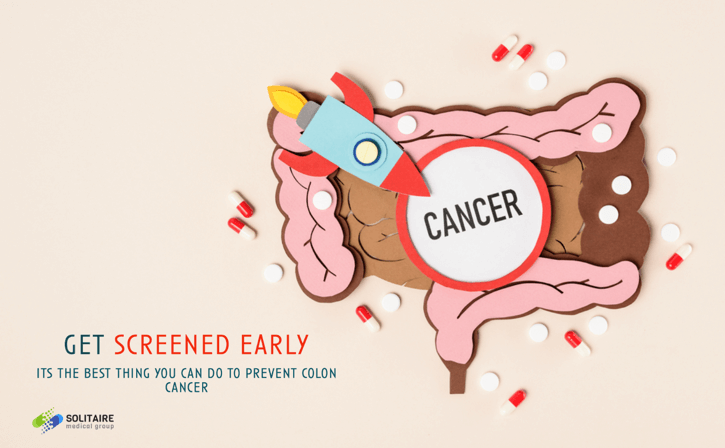With an alarming rise of colon cancer cases each year, doctors now recommend people to begin their colon cancer screenings as early as 45, instead of the usual 50.
Colon cancer also called colorectal cancer or bowel cancer starts in the large intestine. Unlike many other inflammatory diseases such as Crohn’s disease, which occurs anywhere along the GI tract, colon cancer impacts the tract’s final segment.
And although colon cancer is the 4th leading cause of cancer death in Australia, it remains one of the most treatable and even curable cancers, when caught early.
A study conducted by the Cancer Council NSW has found that for people under 50, the rate of colon cancer has increased by 9.3% per year and the incidence rate significantly increasing since the mid-2000s. This rise can be attributed to increased obesity, smoking, heightened alcohol consumption and eating a diet rich in processed food among the younger generation.
Why are the symptoms of colon cancer often missed?

Colon cancer might not cause any symptoms right away. In fact, the more widely known symptoms such as changes in bowel habits, diarrhoea or constipation can result from an infection or other diseases.
Many colon cancer patients agree that missing symptoms can lead to serious consequences.
For instance, someone chalking up bowel discomfort to haemorrhoids is often possible. But unless you have been diagnosed and confirmed with one, missing a colon cancer screening can be fatal.
Usually, a change in bowel function such as blood in your poo, or runny poo more than once, or unexplained weight loss and persistent abdominal pain that stays longer than 4 weeks are proved enough for you to immediately seek medical help from a GP.
And do remember that screenings are usually for healthy people without any symptoms. So, do not participate in screenings if you have already noticed colon cancer symptoms.
Get screened for colon cancer even before you have any symptoms
For any type of cancer, if it is caught early, the treatment and its management become easier and there are higher chances of curing it completely. For instance, about 90% of people live 5 or more years when their condition is found early through a colon cancer screening.
The new recommendation to begin colon cancer screening at the age of 45 is because when cancer is diagnosed earlier in life, it can avert more deaths due to the disease.
For screening, you might be able to choose from a variety of options. But colonoscopy is considered the gold standard for colon cancer screening.
During a colonoscopy procedure, a clinician will look inside the rectum through a flexible, lighted tube called a colonoscope. They might even remove polyps or other tissue for further examination.
Colon cancer screening for people at risk
Regular screening, beginning at the age of 45 is the key to preventing colon cancer. But, in case you fall into any risk groups, speak to your doctors as you may need a colon cancer screening more often.
You should consider screening more often if you:
- Had a personal history of colon cancer or certain types of polyps
- Have a family history of colon cancer
- Had a personal history of any form of inflammatory bowel diseases such as Ulcerative Colitis or Crohn’s disease.
- Had received radiation therapy as part of an earlier cancer treatment
- Had been diagnosed or suspected with Lynch Syndrome
It is estimated that 75 percent of colon cancers could be prevented if everyone goes for screenings. The screening will not only catch colon cancer early when it’s treatable, but it will also help prevent it in the first place by removing tissues that can become cancerous.

